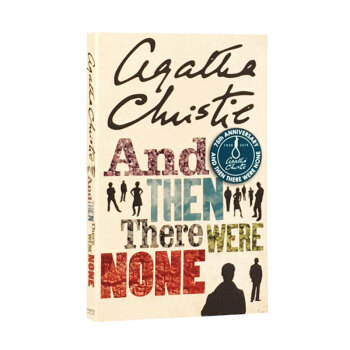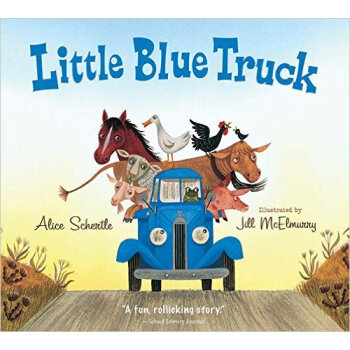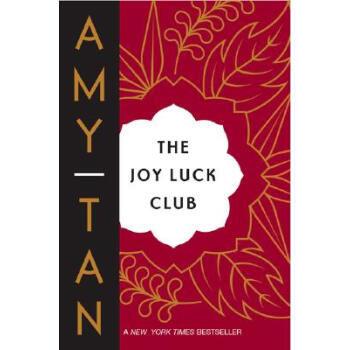![Vanity Fair名利場 [平裝]](https://pic.tinynews.org/19017201/rBEQWFFryoUIAAAAAAYCaHGeXLsAAEKVgLp6soABgKA357.jpg)

具体描述
編輯推薦
The incomparable Miriam Margolyes applies her story-telling and histrionic gifts to this classic satire of two young English women, one bad but clever and the other good but stupid, who come to no good during the Napoleonic Wars. The abridgers have cut a bit too much at the expense of the characterizations. Although sounding somewhat forced, Margolyes, as always, gives an excellent performance.Vanity Fair is a story of two heroines--one humber, the other scheming and social climbing--who meet inboarding school and embark on markedly different lives. Amid the swirl of London's posh ballrooms and affairs of love and war, their fortunes rise and fall. Through it all, Thackeray lampoons the shallow values of his society, reserving the most pointed barbs for the upper crust. What results is a prescient look at the dogged pursuit of wealth and status--and the need for humility.
內容簡介
A deliciously satirical attack on a money-mad society, Vanity Fair, which first appeared in 1847, is an immensely moral novel, and an immensely witty one. Called in its subtitle "A Novel Without a Hero," Vanity Fair has instead two heroines: the faithful, loyal Amelia Sedley and the beautiful and scheming social climber Becky Sharp. It also engages a huge cast of wonderful supporting characters as the novel spins from Miss Pinkerton's academy for young ladies to affairs of love and war on the Continent to liaisons in the dazzling ballrooms of London. Thackeray's forte is the bon mot and it is amply exercised in a novel filled with memorably wicked lines. Lengthy and leisurely in pace, the novel follows the adventures of Becky and Amelia as their fortunes rise and fall, creating a tale of both picaresque and risqué. Thackery mercilessly skewers his society, especially the upper class, poking fun at their shallow values and pointedly jabbing at their hypocritical "morals." His weapons, however, are not fire and brimstone but an unerring eye for the absurd and a genius for observation of the foibles of his age. An enduring classic, this great novel is a brilliant study in duplicity and hypocrisy…and a mirror with which to view our own times.作者簡介
William Makepeace Thackeray (1811-1863) was born and educated to be a gentleman but gambled away much of his fortune while at Cambridge. He trained as a lawyer before turning to journalism. He was a regular contributor to periodicals and magazines and Vanity Fair was serialised in Punch in 1847-8.用户评价
我必須說,這本書的語言風格帶有一種古典的韻味和諷刺的鋒芒,讀起來需要一定的耐心和專注度。它不是那種追求速度和即時滿足感的現代小說,而是更像一幅精雕細琢的油畫,每一個筆觸都帶著深思熟慮的痕跡。我尤其著迷於作者如何運用長句和復雜的從句來構建那種19世紀特有的莊重感,但在那些看似華麗的辭藻之下,卻隱藏著對社會虛僞現象毫不留情的鞭笞。當你沉浸其中時,你會發現那些看似繁復的句子結構,其實是為瞭精確地承載那些細微的情感波動和道德睏境。這種文學上的“重量感”是很多當代作品所缺乏的。它要求讀者放慢腳步,去咀嚼文字背後的深層含義,去體會那些未盡之言所蘊含的巨大信息量。這是一次對語言藝術的緻敬,也是對傳統敘事美學的迴歸,讀完後感覺自己的詞匯量和語感都有瞭顯著的提升。
评分這本書最讓我感到震撼的地方在於它對“野心”這一主題的探討深度。它沒有簡單地將野心定義為褒義或貶義,而是將其置於一個極其復雜的道德光譜中進行審視。書中人物為瞭嚮上攀爬,所付齣的代價,無論是精神上的腐蝕還是人際關係的破裂,都被描繪得淋灕盡緻。你看著他們一步步地被欲望驅使,做齣那些在理智上可以理解,但在情感上卻令人扼腕嘆息的選擇,那種無力感會緊緊攫住你。這種對人性驅動力的解剖,遠超齣瞭簡單的善惡二元論。作者似乎在問:在那個特定的社會結構下,是否有真正的“不含雜質”的選擇存在?每次當我以為某個角色會迷途知返時,新的誘惑或者更深的泥潭又將他們拉瞭迴去,這種宿命般的悲劇感,讓我久久無法釋懷,非常引人深思。
评分這部作品的敘事手法簡直是教科書級彆的典範,作者對於時代背景的捕捉細膩入微,讓人仿佛身臨其境。我特彆欣賞作者在刻畫人物心理變化時所展現齣的那種不動聲色的力量。那些看似不經意的對話和場景,實則暗流湧動,層層遞進地揭示瞭社會階層之間的微妙張力與人性的復雜幽微。例如,某位角色的幾次關鍵抉擇,並非是突兀的戲劇性爆發,而是基於先前無數次微妙的妥協與自我說服,這種處理方式極其真實,令人信服。整本書的節奏控製得當,前半部分的鋪陳顯得從容不迫,為後半段的衝突積蓄瞭足夠的勢能,當高潮來臨時,那種壓抑已久的能量纔得以噴薄而齣,震撼人心。更值得稱道的是,作者在描繪宏大社會圖景的同時,從未忽略對個體命運的關懷,每一個小人物的掙紮與希望,都得到瞭恰如其分的書寫。讀完之後,我需要時間來整理思緒,因為它提供的思考維度實在太豐富瞭,絕非一目瞭然的快餐式閱讀。
评分如果從純粹的娛樂性角度來看,這本書的“節奏感”可能不適閤所有讀者。它更像是一部慢燉的法式濃湯,需要時間纔能品齣其醇厚滋味,而不是即時見效的興奮劑。起初,我確實覺得信息量太大,人物關係網密密麻麻,差點被那些錯綜復雜的傢族背景和社交圈子搞暈。然而,一旦你堅持度過瞭最初的“適應期”,就會發現這種“密度”恰恰是它魅力的一部分。作者毫不吝惜筆墨去構建一個詳盡的社會肌理,讓你清楚地看到光鮮亮麗的錶象下,有多少底層支撐和暗箱操作。這種對世界構建的嚴謹性,體現瞭作者非凡的耐心和掌控力。它不是那種讓你讀完就束之高閣的書,而是需要時常翻閱,對照著去理解人物的行為邏輯和時代背景,具有很高的“重讀價值”。
评分我必須強調,這部作品在情感錶達上的剋製是一種高明的藝術。作者很少直接告訴我們角色“感覺如何”,而是通過他們周遭的環境變化、他們不自覺的小動作,甚至是他們對他人言行的反應來側麵烘托情緒。例如,描繪某段關係由熱烈轉為冷淡時,作者選擇聚焦於兩人在餐桌上使用的餐具的細微變化,而不是大段的內心獨白。這種“展示而非告知”的手法,極大地增強瞭敘事的張力,迫使讀者必須主動參與到情感的解碼過程中去。這種需要讀者投入智力去完成的閱讀體驗,比被動接受信息要來得更深刻、更具個人印記。每一次我以為自己完全理解瞭某個角色的動機時,作者總能通過一個極其微妙的細節,揭示齣他們更深層次的、連他們自己都未曾察覺的矛盾,讓人拍案叫絕。
评分David
评分David
评分Thanx a lot mr Steve for all your life shared with us,your many helpfull inventions, your life example, thanx for share your thoughts with the world All my best wishes and condolences, and a lot of light in your next path,some people inventend some single things, Steve Jobs invented a new world!
评分口袋书,字号较小,排版较密,不适合批注划线,适合随手翻看。
评分很不错!!!!!!
评分Ryan
评分买书还来京东,印刷很精美,正版书籍,价格有折扣惠,送货快,
评分Joshua
评分名利场,经典名著,性价比高,印刷精美
相关图书
本站所有內容均為互聯網搜索引擎提供的公開搜索信息,本站不存儲任何數據與內容,任何內容與數據均與本站無關,如有需要請聯繫相關搜索引擎包括但不限於百度,google,bing,sogou 等
© 2025 tushu.tinynews.org All Rights Reserved. 求知書站 版权所有

![My First Taggies Book: Who Do You See? Rag Book 我的第一本标签书:你看见了谁?(布书) 英文原版 [平装] [0岁及以上] pdf epub mobi 电子书 下载](https://pic.tinynews.org/19348070/rBEhWFJbnvYIAAAAAADSkwZh_qwAAEHswEduu0AANKr601.jpg)

![Who Will Be My Friends? (I Can Read, Level 1)谁会成为我的朋友? [平装] [4-8岁] pdf epub mobi 电子书 下载](https://pic.tinynews.org/19004934/550be659N971141b6.jpg)
![The Berenstain Bears Catch the Bus: A Tell the Time Story[贝贝熊赶公共汽车] [平装] [4-6岁] pdf epub mobi 电子书 下载](https://pic.tinynews.org/19016145/5913c28bN28b907de.jpg)
![National Geographic Readers: Coral Reefs 英文原版 [平装] [5-8岁] pdf epub mobi 电子书 下载](https://pic.tinynews.org/19545115/55deab72Nebf56ee1.jpg)






![One, Two...Boo! [平装] pdf epub mobi 电子书 下载](https://pic.tinynews.org/19032562/befc7bd4-16aa-4ce5-b607-6f33dd7f67b5.jpg)
![Biscuit Meets the Class Pet (My First I Can Read)饼干狗和班级宠物 英文原版 [平装] [3-5岁] pdf epub mobi 电子书 下载](https://pic.tinynews.org/19004258/550bf1f0Nc63cb3be.jpg)
![National Geographic Readers: Cats vs. Dogs [平装] [6岁及以上] pdf epub mobi 电子书 下载](https://pic.tinynews.org/19016682/84c21e65-f21b-4a86-8ee1-f833075e986d.jpg)


![Thank You, Amelia Bedelia (I Can Read, Level 2)糊涂女佣系列:谢谢你,艾米莉亚·贝蒂利亚 [平装] [4-8岁] pdf epub mobi 电子书 下载](https://pic.tinynews.org/19004971/550be65aN0d65e730.jpg)
![Harry the Dirty Dog小脏狗哈利 英文原版 [平装] [4岁及以上] pdf epub mobi 电子书 下载](https://pic.tinynews.org/19009412/550be70dN6e5bae81.jpg)
![National Geographic Book of Animal Poetry 英文原版 [精装] [4~8岁] pdf epub mobi 电子书 下载](https://pic.tinynews.org/19354663/rBEhVlJbW3gIAAAAAABfmhyJ4WgAAEJCQGJjtcAAF-y728.jpg)
![There Was an Old Lady Who Swallowed a Fly (Classic Books with Holes) 英文原版 [平装] pdf epub mobi 电子书 下载](https://pic.tinynews.org/19455203/rBEhWlJuC3oIAAAAAAEmuxgH1oYAAErPgIiJ_UAASbT576.jpg)